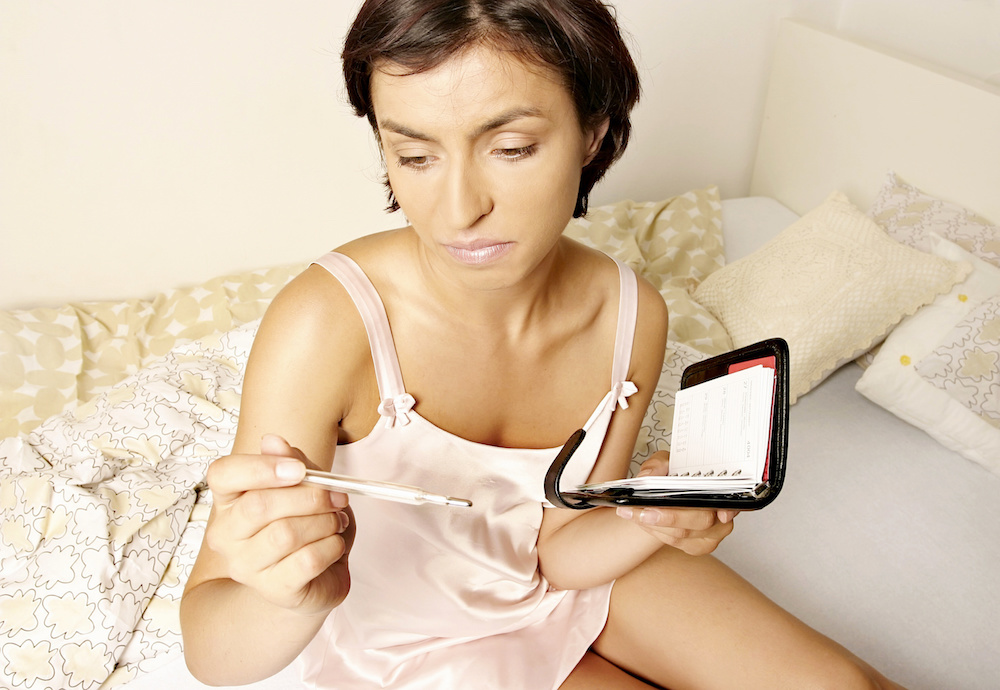Although some women can experience spotting, bleeding, and/or minor discomfort in their lower abdomen while ovulating, many may have no symptoms during this time. If you don’t show these symptoms, how do you know when you’re ovulating?
It is important to understand your cycle and when you could be fertile or are most likely to become pregnant. Your cycle starts with the first day of your period and ends with the first day of your next period, with an average cycle lasting around 28 days and ovulation typically starting on day 14 of your cycle. Generally, you are most fertile a few days before and during your ovulating time.
Track and know when you’re ovulating
You can learn when you’re ovulating, to help predict when you will most likely be fertile, by using ovulation calendars. These calendars, which are available online, give approximate ovulation dates and fertile times for those who have regular periods (meaning you have a period every 21 to 40 days.)
Fertility charting, basal temperature tracking, and purchased ovulation test kits can also be used to help predict your fertile times, which can be especially useful if you have irregular periods.
Louise E. Wilkins-Haug, MD, PhD is the Division Director of Maternal Fetal Medicine and Reproductive Genetics at Brigham and Women’s Hospital
http://healthlibrary.brighamandwomens.org/Search/85,P00553
http://healthlibrary.brighamandwomens.org/41,OvulationCalc
If you are having trouble getting pregnant, you may also want to read this interesting article on “Infertility Etiquette
.” Friends and family who have not experienced infertility have good intentions, but often don’t understand how sensitive the situation may be. Navigating the waters can be incredibly difficult for aspiring couples, as well as their friends and family. The article gives 12 tips to help all parties build strong, supportive relationships.
